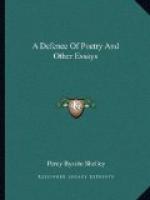My neighbour, presuming on his strength, may direct me to perform or to refrain from a particular action; indicating a certain arbitrary penalty in the event of disobedience within power to inflict. My action, if modified by his menaces, can no degree participate in virtue. He has afforded me no criterion as to what is right or wrong. A king, or an assembly of men, may publish a proclamation affixing any penalty to any particular action, but that is not immoral because such penalty is affixed. Nothing is more evident than that the epithet of virtue is inapplicable to the refraining from that action on account of the evil arbitrarily attached to it. If the action is in itself beneficial, virtue would rather consist in not refraining from it, but in firmly defying the personal consequences attached to its performance.
Some usurper of supernatural energy might subdue the whole globe to his power; he might possess new and unheard-of resources for enduing his punishments with the most terrible attributes or pain. The torments of his victims might be intense in their degree, and protracted to an infinite duration. Still the ’will of the lawgiver’ would afford no surer criterion as to what actions were right or wrong. It would only increase the possible virtue of those who refuse to become the instruments of his tyranny.
II—moral science consists in considering the difference, not the resemblance, of persons
The internal influence, derived from the constitution of the mind from which they flow, produces that peculiar modification of actions, which makes them intrinsically good or evil.




